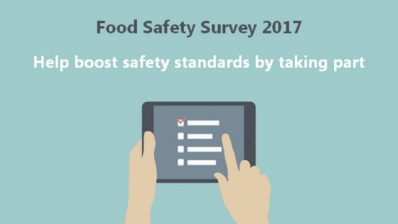Reduce burden of hygiene audits

Andrew Kuyk, director general of the PTF, has called for the escalating number of audits being carried out to be curbed by applying more “common sense” and consolidating the multiple inspections of the same companies, which tends to take place.
Kuyk said that while the problem had grown considerably in recent years, moves were now afoot to resolve it. A further meeting of stakeholders was scheduled for early in the New Year to address the issue, he reported.
The PTF has already held a meeting with a representative of the British Retail Consortium (BRC) Global Standards, which is one of the main third-party hygiene audit schemes operating in the UK and elsewhere across the world.
Resolving the problem
Geoff Spriegel, chair of the International Advisory Board for BRC Global Standards, who has been tasked with resolving the problem, approached the PTF following its complaint and that of others about the rising audit burden.
Spriegel has been set three tasks. First, he is attempting to quantify the burden of multiple audits on the industry, collating the number of audits and time spent on them. Secondly, he is looking at whether it would be possible to consolidate audits in some way, such that their number could be reduced. Third, he is working with the Food Standards Agency and food businesses’ Primary Authorities, to establish what constitutes a due diligence defence in terms of audit.
Kuyk said the PTF had conducted a survey of its members just over a year ago, which confirmed that a large number of audits were being carried out by retailers on their suppliers, imposing an unnecessary burden on those subjected to them.
“In a bigger organisation you might have staff that would be full-time committed to audits and available,” said Kuyk.
“But a smaller business might have to divert a couple of people for a couple of days with a particular customer and then a few days later you get another audit by another customer. It is variable but in the worst case there would be four days a week dealing with audits.”
Kuyk said that a large number of these audits were conducted by independent, third-party consultants employed by retailers. He gave one example in which an auditor visited a factory on behalf of one retailer for two days and the same auditor returned to do the same for another retailer two days later.
‘What is the point’
“You begin to ask what is the point? The feeling is that it is a bit of a box ticking exercise,” complained Kuyk.
“The common sense is that there must be some scope for rationalisation. In theory that is what the BRC standard was meant to do and provide a common core but there seems to be less willingness to accept that.
“There should be more widespread use of the BRC standard and when there is a third-party that has already recently been to a factory they need to be allowed to use the previous visit to inform the subsequent one.”

















